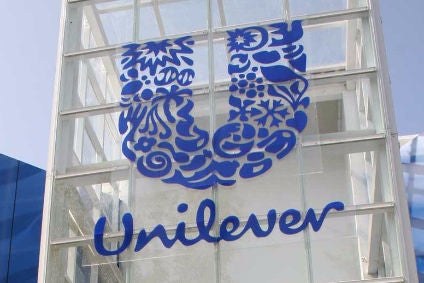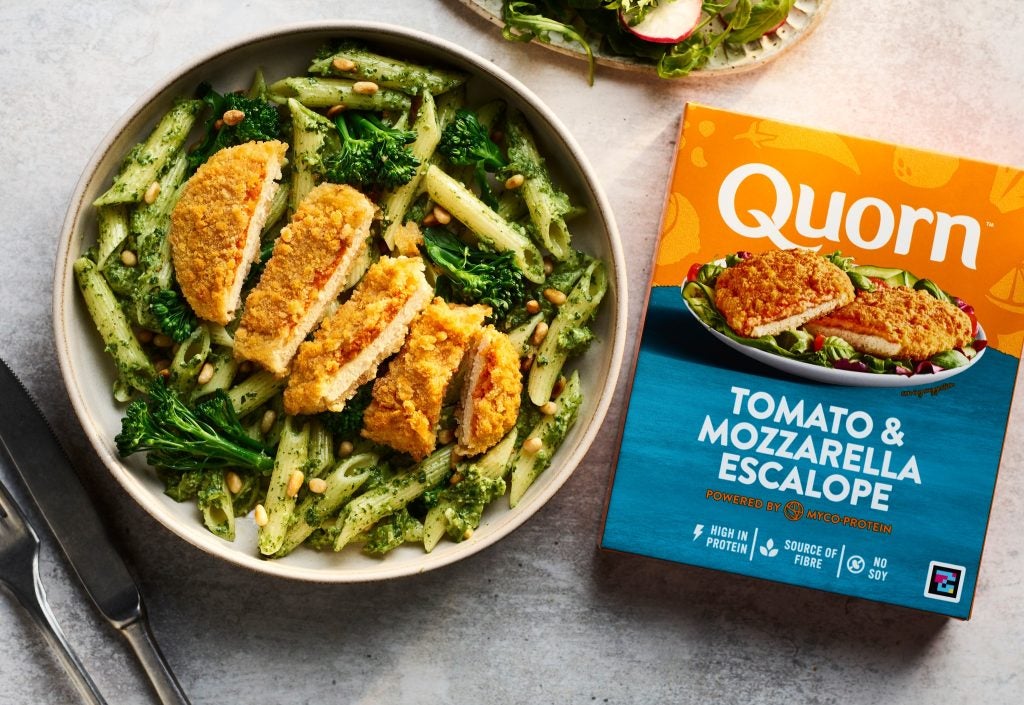
Weak consumer sentiment in some emerging economies and growing demand for value from consumers in developed markets weighed heavy on Unilever‘s list of first-quarter woes, alongside ongoing challenges in its spreads division. But on an investor call to discuss its sales for the opening months of 2016, the Flora owner highlighted innovation centred around the growing interest in health and wellness and a string of cost-saving initiatives as measures to drive its performance this year.
Unilever’s forecast of tough trading conditions plays out
In January this year, when Unilever reported its results for 2015, the consumer goods giant said it was preparing for the global business environment to become even more challenging. “That has been the case,” CFO Graham Pitkethly said today.
The Magnum and Knorr owner saw turbulence in the majority of markets it operates in during the first quarter. In Europe, volumes were stable but prices declined, while in North America, growth in Unilever’s categories has “eased back” to 1%. In Brazil and Argentina market volumes contracted as consumers continue to battle rising unemployment and high local inflation brought on by currency devaluations. Commodity-exporting countries and regions like Russia, South Africa and the Gulf saw pressure on demand. Though China, India and South East Asia did perform “better”, consumer demand was still “subdued against historic trend levels”, added Pitkethly.
Emerging markets leading the way
Unilever’s first-quarter sales growth was driven by emerging markets, which saw sales grow 8.3%. However, sales in the largest region – Asia/ North Africa, Middle East, Turkey /Russia, Ukraine, Belarus: which represents 75% of Unilever’s sales in emerging markets – grew at a slower rate, seeing sales rise 3.5% on the back of higher volumes. Volumes in Russia moved back to growth although market conditions remain “fragile” said investor relations boss Andrew Stephen. Africa saw “good growth” he added, despite volume decline in South Africa as weaker currency impacted consumer disposable income.
Caution on LatAm
In Brazil and Argentina, Unilever said it experienced consumers cutting down on purchases and “downtrading” to more value-oriented items in response to the high level of price inflation across the countries. Unilever insisted it had been able to mitigate the issue through investment in brands, strong execution and the use of its full portfolio which includes local value brands. However, Stephen added: “We are cautious on Latin America volumes for the remainder of the year as market conditions are likely to deteriorate further before they improve.”
See Also:
Digital growth in emerging markets
Notably, we heard how Unilever is experiencing growth in China thanks to investments it has made in digital initiatives. Last year, Unilever announced a tie-up with Chinese e-commerce retailer Alibaba. “We are growing strongly in e-commerce in China which nearly doubled in the last year, largely through our partnerships with Alibaba,” Pitkethly asserted. In the first quarter in China, Unilever said it saw mid-single digit growth in sales, which all came from volumes. Stephen pointed out the growth was being “strongly driven” by e-commerce. “Around 7% of our business is in e-commerce, it could well be 10% by the end of the year and that’s what we are aiming for,” he added. However, Warren Ackerman, analyst at Societe Generale, questioned whether, given the rapid online growth being experienced in China, Unilever had been too slow to get into the online game. Stephen replied: “Yes we were a little behind some others in developing our e-commerce capabilities. We now have more than 100 people there so we are catching up very quickly. Our relationship with Alibaba is helping that.”
How well do you really know your competitors?
Access the most comprehensive Company Profiles on the market, powered by GlobalData. Save hours of research. Gain competitive edge.

Thank you!
Your download email will arrive shortly
Not ready to buy yet? Download a free sample
We are confident about the unique quality of our Company Profiles. However, we want you to make the most beneficial decision for your business, so we offer a free sample that you can download by submitting the below form
By GlobalDataWeakness in spreads continues
Spreads once again continued to weigh on the group’s results. The Flora and Becell declined to elaborate on its spreads sales in the US and Europe, insisting it would be “too high a level of detail” for a quarterly update. However Pitkethly did say the spreads market “remains challenging” with continued category declines in North America and Europe. Pressure on volumes stem from the reduction in consumption of bread as well as falling butter prices. When asked when he believed the declines would “bottom out” Pitkethly remained coy, adding: “What that means for our own business is it’s still mid-single digit [sales] declines,” said Pitkethly. “We’re continuing to execute our strategy, that’s the phase we’re at at the moment. As you know the business has a very strong margin contribution to Unilever and generates a lot of cash. Most fundamentally what we are focused on doing is executing the plans and preserving the cash the business generates in the interests of shareholders”.
Foods can grow
While Unilever’s food unit saw a 1.9% increase in underlying sales growth, excluding adjustments, turnover fell 3.5% in the period. Pitkethly said despite individual challenges in each of its markets, Unilever is still banking on sales growth via “its broad portfolio, sustained investments in brands and locally relevant innovation”. Stephen said in emerging markets, Unilever’s food sales growth was driven by “innovation that combines global scale in branding and technology with local relevance”. He pointed to the launch of Knorr Mealmakers launch in south-east Asia, and a range of Knorr Masala seasonings mixes that were rolled out in India, which he said offered “restaurant quality taste in innovative ziplock packs”.
Managing consumers’ relationship with value
“Many consumers are uptrading to higher-value items for at least part of the daily or weekly shop while at the same time those consumers are looking to economise by downtrading for other products,” Pitkethly said. The group is now responding with value-driven innovations. Unilever pointed out the launch of a yoghurt variant of the smaller-sized Cornetto in Europe at an RRP of EUR1. However, the company also said it was looking to improve margins and cashflows in ice cream where it said growth is being driven by premium brands and variants including recent innovations in Magnum, Breyer’s Gelato and Ben & Jerry’s brands.
Health and wellness focus paying off
Unilever said it is seeing “good traction” across the foods portfolio for products that fit authentic, fresh, natural and sustainably-sourced criteria. In February, Unilever announced it was introducing Flora to the UK free-from market with the launch of the Flora Freedom dairy-free spread. The company is in the process of repositioning the Flora brand as “powered by plants” to emphasise the natural plant oils in the spread. Knorr Mealmakers with 100% natural ingredients is “growing well” in Germany, Stephen said. And Hellmann’s mayonnaise is seeing the benefit of investment in marketing, while Unilever has added to the added to the range in the US with an organic line and a vegan-alternative under the banner Carefully Crafted.
Eyeing EUR1bn in savings for 2018
One of the key announcements in today’s call was a set of initiatives aimed at delivering higher revenues and improving margins. The three initiatives – net revenue management, new functional models and zero-based budgeting – were first unveiled at the group’s investor day in December. New functional models and zero-based budgeting are expected to deliver EUR1bn of savings by 2018 “with benefits realised progressively through the course of the second half of this year and 2017”, Pitkethly said.
- Net revenue management
Unilever’s work here will be centred on attempting to understand how consumers perceive the value of a product and trying to align product price, placement and availability. An example given by the group – though outside of food – was the increase in price of a smalI and super-sized box of laundry powder in Brazil and a reduced price of the mid-sized box. The illustration aimed to relay the message of how Unilever was looking to benefit from “downtrading” being seen in some markets. The programme has been rolled out globally. “We expect it to help to underpin consistent share gain and consistent share growth in the 3-5% range despite the challenging retail and competitive environment,” said Pitkethly.
- New functional models
The “world around us continues to change rapidly,” Pitkethly said, adding trends are gaining global scale and innovations with new technologies being launched faster. He noted however consumers were still “identifying with local cultures,” looking for brands and products that meet individual needs. Unilever is planning to “change the organisation…to make it faster, simpler, more consumer and customer-centric and ready for the connected world”, he said.
Changes are expected to be implemented in the second half of the year. For now, Pitkethly said the key points to note are “there will be a stronger, more impactful and directly connected global organisation to help speed up the adoption of global ideas and technologies”. He added: “At the same time, the organisation will be more market-facing with more executional resource applied locally. Fewer layers and less resource in regional hubs and head offices will allow clearer responsibility and accountability, faster decisions and action as well as lower costs.”
- Zero-based budgeting
Unilever is looking at managing its spend in overheads and marketing outside of salaries. The first step, which will be completed by the end of the month, is an attempt to give Unilever more visibility around what is being spent by and whom. The second step is “value targeting” – agreeing savings with each of the budget holders – and the third step is “implementation and control”, which involves reviews to ensure savings are being delivered.
Savings realised from the programme will boost margins and some reinvested in growth opportunities.
“We see them helping to underpin the competitive growth and steady year-on-year margin improvement that we have been achieving and expect to sustain,” Pitkethly said.







